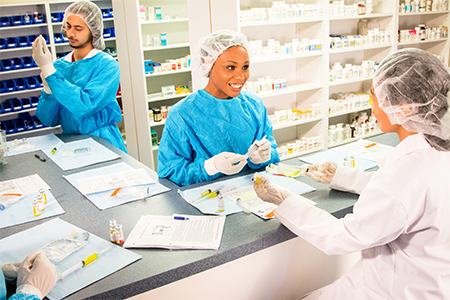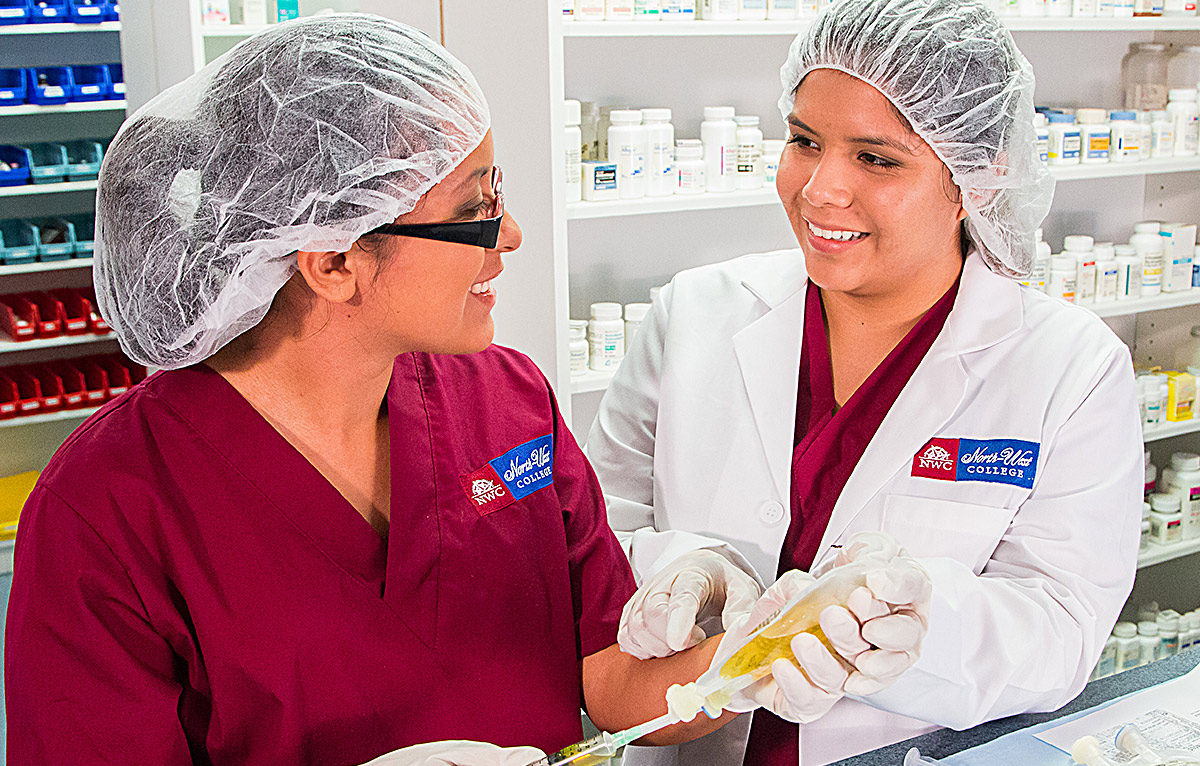Employment of Pharmacy Technicians is projected to grow 9 percent from 2014 to 2024, faster than the average for all occupations. Several factors will lead to increased demand for prescription medications.
The population is aging, and older people typically use more prescription medicines than younger people. Higher rates of chronic diseases such as diabetes among all age groups also will lead to increased demand for prescription medications. Advances in pharmaceutical research will allow for more prescription medications to be used to fight diseases.
Pharmacy Technicians are skilled professionals trained to perform clerical duties and tasks related to preparing and dispensing of pharmaceutical drugs. Pharmacy Technicians are usually included in all pharmacy functions except those which require the proficiency of a licensed pharmacist.
Pharmacy technicians work under the supervision of pharmacists, who must review prescriptions before they are given to patients. In most states, technicians can compound or mix some medications and call physicians for prescription refill authorizations. Technicians also may need to operate automated dispensing equipment when filling prescription orders.
Pharmacy Technicians routinely perform a variety of important tasks, including:
- Collecting prescription information needed to fill prescriptions
- Measure amounts of medication for prescriptions
- Package and label prescriptions
- Organize inventory and alert pharmacists to any shortages of medications or supplies
- Accept payment for prescriptions and process insurance claims
- Enter customer or patient information, including any prescriptions taken, into a computer system
- Answer phone calls from customers
- Arrange for customers to speak with pharmacists if customers have questions about medications or health matters
The Pharmacy Technician program at North-West College can provide you with the hands on training and education required to become a certified pharmacy tech.
During the course of this program, you will learn the skills and procedures commonly performed by pharmacy technicians in hospitals, retail pharmacies and pharmaceutical laboratories, including how to perform pharmaceutical calculations, prescription processing, drug labeling, sterile and non-sterile drug compounding, and dispensing over-the-counter pharmaceuticals.
In addition, the program teaches medical terminology, pharmacy-related general medicine, along with the laws and regulations governing the pharmacy industry, such as FDA and DEA regulations and ethical codes of conduct.
*North-West College cannot guarantee employment.

